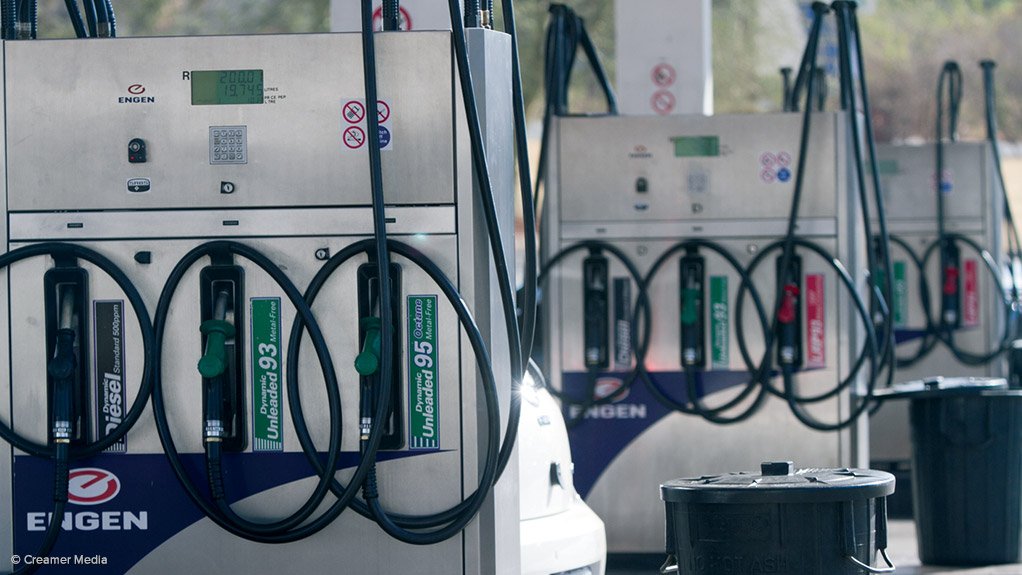Oil prices could bounce back to $65, $70 a barrel, with the price already strengthening in February to above $50 a barrel, said Econometrix director and chief economist Dr Azar Jammine on Tuesday.
Speaking at a breakfast meeting in Pretoria, hosted by Ford, he said collapsing oil prices had seen the cost of domestic fuel come down by around 30% from a year ago.
“But it’s not going to stay that way,” he warned. “The petrol price will go up by 40c, 50c next month. So enjoy February and the low prices for the moment.”
While falling oil prices aided in bringing down inflation and putting more money into consumers’ pockets, it also had a negative impact, noted Jammine.
In 2014, South Africa’s oil imports were up 16.2%, while mineral exports were down 0.5%.
Oil was not the only commodity facing difficulty, said Jammine, with global demand for other commodities, such as iron-ore, mined in South Africa, also depressed.
“As much as we are benefiting from oil prices, we are losing out because other mineral prices are also low. It’s not a one-way street.”
Also, many African economies, such as Nigeria and Angola, were dependent on oil exports, and a slowing regional economy would be negative for South African exports, he said.
Ford Motor Company of Southern Africa (FMCSA) president Jeff Nemeth expected exports from FMCSA's Pretoria plant to Nigeria and Angola, two of Ford’s biggest markets in the region, to decline in 2015 compared with last year.
New vehicle sales in these two oil-exporting countries were heavily weighted towards government and business fleets, more so than in a market such as South Africa.
“As business and governments are going to be struggling because of lower revenues from oil exports, we forecast lower sales rates in Nigeria and Angola than we saw in 2014. But, for the overall market in sub-Saharan Africa, we project stable sales to what we had in 2014.”
Jammine noted that while a lower oil price would impact economic growth in the region, it would not derail the positive development drive emerging from sub-Saharan Africa.
He added that South Africa was increasingly dependent on the African market, with the country's 2014 exports to the rest of the continent at 30.5% of total exports, almost overtaking exports to Asia, at 30.9%.
In 2013 exports to the rest of Africa was at 28.6% of total exports from South Africa, with Asia at 32.2%.
“Sub-Saharan Africa is a really big export market, and it will help to provide quite a lot of support for our economic growth going forward,” said Jammine.
Looking at exchange rates, he said Econometrix expected the rand to continue its decline against the dollar, ending the year at R12.04 to the greenback.
The rand was expected to reach R13.72 to the ‘collapsing’ Euro by the end of the year, R17.82 to the pound, and R10.44 to the yen.
Jammine did not expect major vehicle price increases this year, especially as the rand had managed to gain ground against the yen and Euro in recent months.
He said domestic new vehicle sales were fuelled by latent replacement demand from the economic downturn in 2008/09; the tourism market, which stimulated car rental; reduced household debt; low interest rates; and business spending its capital on renewing fleets, rather than committing to large projects in an uncertain, low-growth market.
The Econometrix forecast was for passenger car sales to drop by 0.5% in 2015 over 2014, and for light commercial vehicle sales to decline by 1.4%.
South Africa’s economy was expected to grow by 2.3% in 2015.
Jammine added that the South African government could look at increasing the fuel levy to fund its income gap, rather than increasing value-added tax or personal tax.
He said a 56c/l increase in the fuel levy would earn Treasury an additional R12-billion to R15-billion a year, with the blow softened by lower fuel prices.
EMAIL THIS ARTICLE SAVE THIS ARTICLE
To subscribe email subscriptions@creamermedia.co.za or click here
To advertise email advertising@creamermedia.co.za or click here











